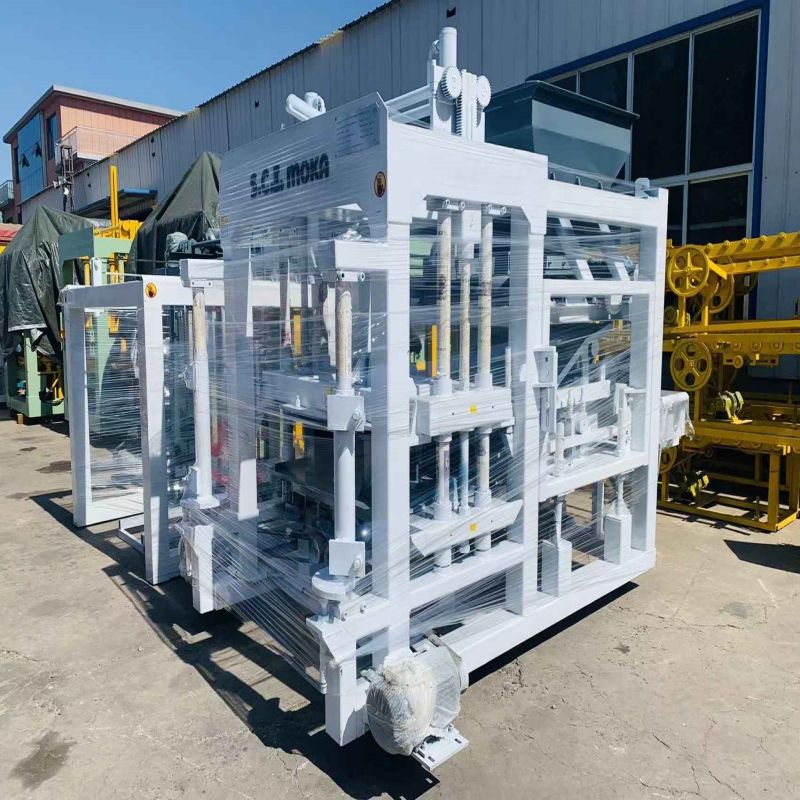
Introduction
The brick making industry plays a vital role in the construction sector of African nations. It provides the building blocks for homes, infrastructure, and economic growth. However, like any industry, it faces a myriad of challenges. This article explores the challenges encountered by the brick making industry in African nations and presents innovative solutions to address these issues, ultimately paving the way for sustainable and prosperous development.
1. Urbanization and Housing Demands
Challenge: Rapid urbanization in African cities has led to increased housing demands, putting immense pressure on the brick making industry to produce sufficient building materials.
Solutions:
- Affordable Housing Initiatives: Governments can partner with brick manufacturers to promote affordable housing projects.
- Innovative Brick Production: Explore alternative materials like compressed earth blocks or interlocking bricks, which can be produced more quickly and cost-effectively.
2. Environmental Concerns
Challenge: Traditional brick production methods often result in environmental degradation due to resource-intensive processes and emissions.
Solutions:
- Sustainable Materials: Invest in research and development to create eco-friendly brick materials, such as using recycled materials or adopting alternative production methods like adobe bricks.
- Cleaner Kilns: Upgrade kilns to reduce emissions and energy consumption.
3. Access to Capital
Challenge: Many small-scale brick makers in Africa struggle to access capital to invest in modern equipment and technology.
Solutions:
- Government Support: Governments can provide financial incentives, grants, or low-interest loans to support brick manufacturers, particularly small-scale enterprises.
- Microfinance Initiatives: Encourage microfinance institutions to provide loans tailored to the needs of brick makers.
4. Regulatory Challenges
Challenge: Navigating complex government regulations, permits, and compliance requirements can be daunting for brick makers.
Solutions:
- Simplified Procedures: Streamline regulatory processes and provide clear guidelines to reduce bureaucratic hurdles.
- Education and Training: Offer workshops and training programs to help brick makers understand and comply with regulations.
5. Technological Advancements
Challenge: Limited access to modern brick making technology hampers efficiency and quality.
Solutions:
- Technology Transfer: Facilitate technology transfer programs to make advanced brick making machinery more accessible.
- Research and Development: Invest in research to adapt existing technologies to local contexts and needs.
6. Skills Shortage
Challenge: There is often a shortage of skilled labor in the brick making industry, particularly for operating and maintaining advanced machinery.
Solutions:
- Training Programs: Establish vocational training programs to develop the necessary skills.
- Apprenticeships: Promote apprenticeship opportunities within the brick making industry to transfer skills from experienced workers to the younger generation.
7. Market Competition
Challenge: Small-scale brick makers often face stiff competition from larger manufacturers.
Solutions:
- Niche Markets: Identify niche markets or specialty products that cater to specific customer needs.
- Quality Differentiation: Focus on producing high-quality bricks with unique characteristics that distinguish them from competitors.
8. Sustainability and Recycling
Challenge: Brick making can generate waste and contribute to environmental degradation if sustainable practices are not adopted.
Solutions:
- Recycling Initiatives: Explore opportunities to recycle construction and demolition waste into bricks.
- Eco-Friendly Materials: Invest in the development of sustainable brick materials that reduce waste and resource consumption.
9. Infrastructure and Logistics
Challenge: Inadequate infrastructure and transportation networks can hinder the supply chain and distribution of bricks.
Solutions:
- Infrastructure Development: Advocate for infrastructure improvements to facilitate the movement of raw materials and finished products.
- Local Sourcing: Encourage localized brick production to reduce transportation costs.
10. Community Engagement and Education
Challenge: Building awareness and fostering community support for sustainable brick making practices can be challenging.
Solutions:
- Community Workshops: Organize workshops and awareness campaigns on sustainable brick production.
- Collaboration with NGOs: Partner with non-governmental organizations to promote sustainable building practices and provide resources for education.
Conclusion: A Bright Future for Brick Making in Africa
The challenges faced by the brick making industry in African nations are significant, but they are not insurmountable. With innovative solutions, collaboration among stakeholders, and a commitment to sustainable practices, the industry can thrive, providing essential building materials for the continent’s development while minimizing its environmental footprint. As African nations continue to urbanize and develop, the brick making industry holds immense potential to contribute to sustainable and prosperous futures.
